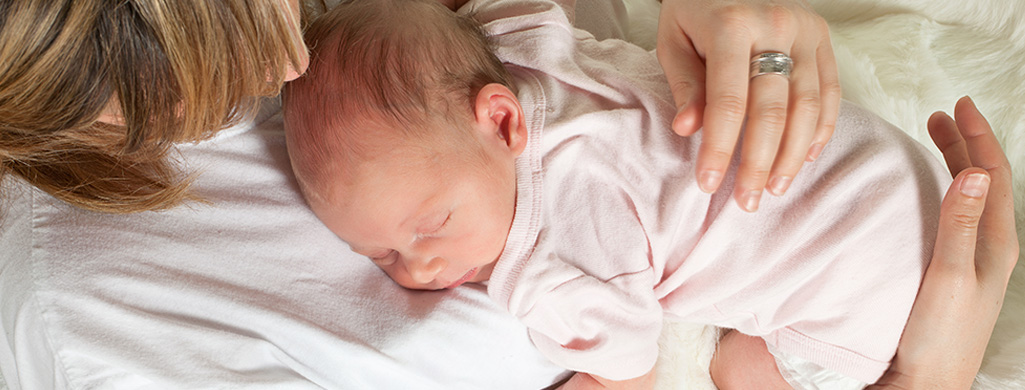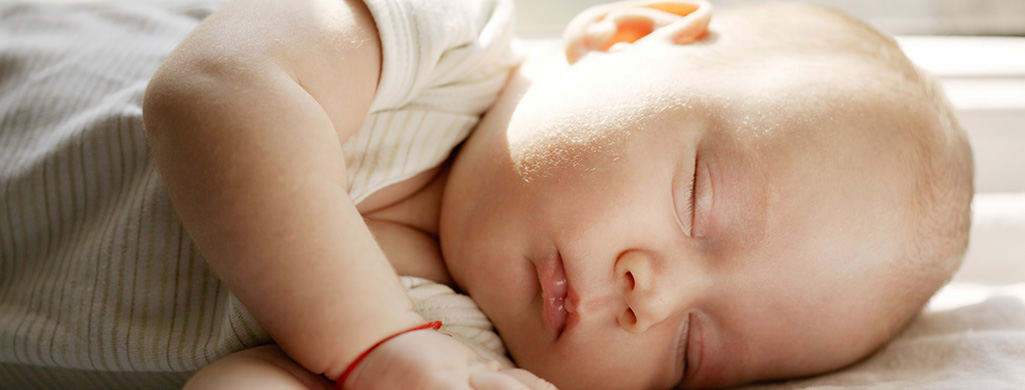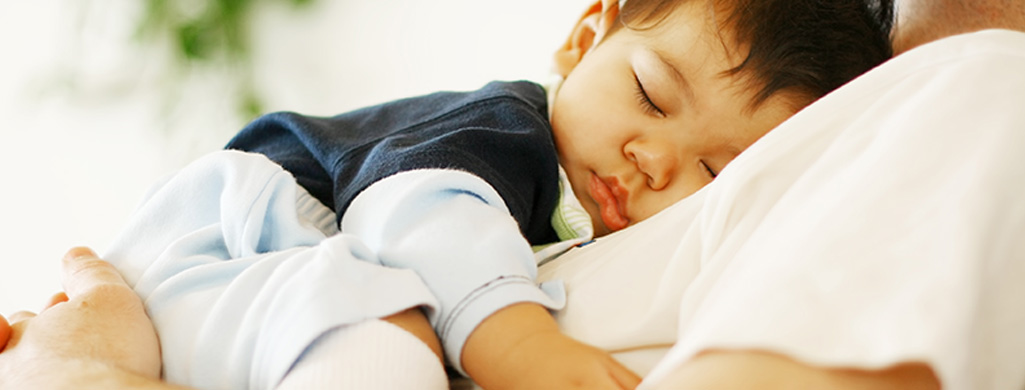Do you have a nine-month-old baby who still doesn’t sleep through the night? Or perhaps your little one’s natural sleep schedule doesn’t work well with the family’s routines? Whatever your issue with your baby’s sleeping, we’ve got help and advice from parents who have been there and yawned over that!
Can a 9-Month-Old Baby Sleep Through the Night?
First up, let’s manage expectations. Yes, the average child of this age can sleep through the night. Your baby’s belly will have grown to have a large enough feed to keep them going until morning, and their brains can sustain the natural sleep and wake cycles we all eventually develop.
So, as long as they are not ill, teething, or suffering from some other kind of upset to their routine, it’s reasonable to expect eight hours or more of continual sleep from a nine-month-old baby.
How Much Sleep Does a Nine-Month-Old Baby Need?
Sleep researchers and healthcare professionals recommend that, at this age, your child has a total of between 12 and 15 hours of sleep every 24 hours.
Between 11 to 12 hours overnight and two to three hours during the day – split between two naps.
However, don’t expect your baby with an unsettled sleep routine to go from four-hour power naps through the night to a solid 11 to 12 hours without interruption. It is more realistic to expect one shorter sleep period at the beginning of the night, a top-up feed, and a second, more extended rest period.
Sample Sleep Schedule for a Nine-Month-Old Child
All babies and all families are different. However, these sample sleep schedules will give you a good idea of how much your baby should sleep and when.
| 6:30 am | Wake for the morning |
| 9:30 am | First nap time |
| 10:00 am | Wake from first nap |
| 2:30 pm | Second naptime |
| 4:00 pm | Wake from second nap |
| 7:00 pm | Begin bedtime routine |
| 7:30 pm | Bedtime |
| 8:00 am | Wake for the morning |
| 11:00 am | First nap time |
| 1:00 pm | Wake from the first nap |
| 4:00 pm | Second naptime |
| 5:30 pm | Wake from the second nap |
| 8:30 pm | Begin bedtime routine |
| 9:00 pm | Bedtime |
Remember, these are just suggestions, and there’s no need to worry if your little one doesn’t stick rigidly to one of these routines. The critical point is that they need between three and 2.75 and 3.5 hours of awake time at this age before they are ready to sleep again.
If you try to get them to sleep before their natural “wake window” is over, you’ll have a cranky child who doesn’t want to sleep, then an upset, overtired child who can’t go to sleep.
How to Help Your 9-Month-Old Baby Sleep Through the Night
The key to successful sleep teaching is consistency. Whether you opt for a cry-it-out approach, a method like Ferber, or any other sleep program, it is critical that you still do the same steps every night.
This way, your child will learn that “bath means story next, then story means bed next, and once I’m in my crib, I need to go to sleep.”
How to Move From Three Naps to Two
If your 9-month-old still has three naps, they’ll probably be ready to drop down to two. A sure sign that this is the case is that your baby will resist going down for one, two, or all three of their naps. Alternatively, they may end up having the last nap of the day so late that it impacts bedtime.
The best way to transition from three naps to two is to start with the first nap of the day. Put your child down for the first nap 15 to 30 minutes later than you usually would. Then do the same for the second nap. When the third naptime comes around, please keep your child occupied by playing games, singing songs, or something equally upbeat until it’s time to begin your bedtime routine.
Stick with this process, and your baby will drop that third nap naturally by the end of the week.
Should I Move My Nine-Month-Old Baby to a Bed?
Moving your child to a bed as soon as possible can be tempting, especially if you are expecting another baby. However, keeping your baby in their crib for as long as possible is best.
You should only move a child this young to a bed if they are climbing out of the crib and are in danger of hurting themselves. In this case, a toddler bed with a guard rail is the safest alternative to a crib.
Common Sleep Issues
Problem: My Baby is Still Waking for a Feed in the Night
Cause:
This could be down to hunger, habit, or sleep associations.
Solution:
Some babies still need a feed at nine months, but you can move this top-up from a sleep-disturbing 3 a.m. event to a more palatable late-night or early-morning snack.
If your baby wakes at 3 a.m. or later, you can make them wait 15 minutes before cracking out the milk. Do this for three mornings, then move forward another 15 minutes, and so on, until you have a feeding time that gives you a solid eight hours of zzz’s.
On the other hand, if the feed is before 3 a.m., try waking your child for their top-up a little before midnight. This feels counter-intuitive – why would you want to wake a sleeping baby? But if you can get your child to feed earlier, they will sleep for six or more hours until morning, which is a more palatable option than the middle of the night.
The Problem: My Baby Plays in Their Crib Instead of Going to Sleep
Cause:
Your little one isn’t tired enough to fall asleep just yet.
Solution:
If your child is happy enough to play in the crib before sleep, this isn’t a problem. Congratulations, you have a child who can amuse themselves and fall asleep without help.
Problem: My Baby climbs Out of the Crib in the Night or Early Morning
Cause:
You have an adventurous baby!
Solution:
For safety reasons, it is best to keep your child in a crib for as long as possible, but if they are climbing out and moving around the house, a toddler bed, or even the crib mattress on the floor, is a safer option.
When we had an early explorer, we had to move her to a toddler bed at this age and put a child gate on her bedroom door. This isn’t the ideal setup, but it was the best way to keep her safe and the rest of us sane.
Problem: My Baby is Waking Repeatedly in the Night
Cause:
There is a myriad of potential reasons for repeated night-time awakenings. For example, the reason could be:
- Your baby hasn’t learned how to self-soothe.
- They know that if they fuss enough, someone will come in.
- Your little one is cutting one or more teeth.
- If they are not noticeably ill, they may be in the first throws of a cold or similar mild illness.
Solution:
- If you haven’t started to sleep, train your child; now is an excellent time to start. If you have already begun to, stick with the program; it won’t be long before they stay settled in the night.
- Consistency is the key to helping your baby sleep through the night. If you stand firm through one night and leave them to fuss, but the next night you give in, this teaches your child that all they have to do is keep fussing, and eventually, you’ll come in and soothe them off to sleep.
- A teething baby is going to wake in the night. They are in pain and miserable and want to be comforted. Your best option is to give the appropriate child pain medication and provide a soothing presence.
- Avoid lifting them from the crib and hugging or rocking your child. If you have to, try to lay your baby back down while they are drowsy but still awake. This way, you minimize the chances of establishing or reestablishing unhelpful sleep associations.
- Like with teething, try to avoid lifting your child from the crib and establishing negative sleep associations. Instead, provide a calm, soothing presence, rub their back, speak softly, and leave the room again after a minute or two.
Top Tips:

Our top sleeping tips for a 9-month-old baby are:
- Don’t make a bedtime before 6 pm. Your baby won’t be ready to sleep, or they will wake exceptionally early. This will also have knock-on effects as your child grows and they wake earlier in the day.
- Don’t leave more than 3 ½ hours between the end of their last nap and bedtime. This will make your baby over-tired and challenging to settle.
- Some babies prefer a sleep routine where they go to bed simultaneously every night. Others settle more quickly if you wait until they show signs of tiredness before starting your bedtime routine. If at all possible, go for the option that works best for your child.
- Don’t rush into the room as soon as your baby makes a sound; allow them to settle themselves back to sleep.
- Stick to the crib for naptimes. It will help your child associate the crib and sleeping.
- Consistency is key. Ensure all family members and caregivers are o the same page and take the same approach to help your baby learn healthy sleep habits.
- If you’re worried about your child’s sleep routine or patterns, don’t hesitate to contact your healthcare professional, who can ensure there are no medical issues and offer you additional help and support.
- Sleep Schedule for a 2-Month-Old Baby - December 24, 2022
- Sleep Schedules for Your 18-month-old Toddler - December 23, 2022
- Sleep Schedule for a 6-Month-Old Baby - December 11, 2022







